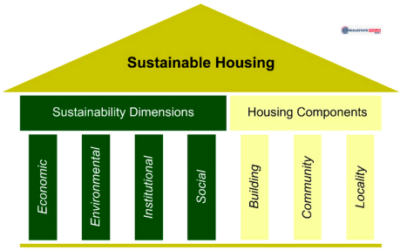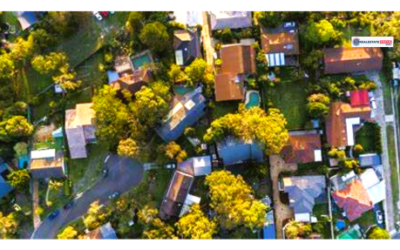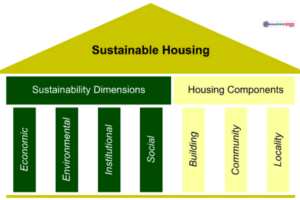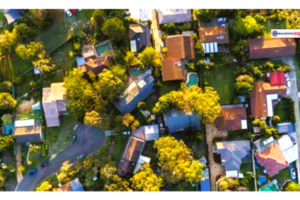

Housing Price Growth to Slow to 3-4% in the Next Fiscal Year Sustainable Growth
Housing prices in India are expected to grow at a slower rate in the next fiscal year. According to a report by India Ratings, the growth in housing prices is likely to moderate to 3-4%. This change follows several years of faster price increases across the country.
The slowdown in growth is mainly due to factors like higher interest rates. The Reserve Bank of India has raised interest rates to control inflation. This has made it more expensive for people to borrow money for home purchases.
In addition to higher interest rates, the supply of homes is also playing a role in the price moderation. Many builders are facing challenges in increasing the number of homes available on the market. This limited supply is expected to keep price growth lower than in previous years.
Demand for housing is also expected to be more stable. After a period of rapid growth, the market is now experiencing more balanced conditions. Buyers and sellers are adjusting to new economic conditions, which include higher borrowing costs and rising home prices.
The residential real estate market has faced many changes in recent years. The pandemic led to increased demand for homes, especially in the suburban and smaller city markets. However, as conditions change, the pace of growth is expected to slow.
India Ratings forecasts that the price growth of housing will stabilize in the next year. The 3-4% increase is lower than the rapid increases seen in previous years. This moderation reflects a more cautious market outlook for home prices.
Experts believe that the moderation in price growth is a healthy sign for the housing market. After years of rising prices, a slowdown could make housing more affordable for buyers. It could also give the market time to adjust to new conditions.
The growth rate of 3-4% is also seen as sustainable. It is not expected to put too much pressure on buyers or sellers. This steady pace of growth is more in line with long-term trends in the real estate sector.
Builders and developers are expected to focus on completing ongoing projects. Many of these projects have faced delays due to supply chain issues and higher construction costs. As these projects are completed, there may be more homes available, which could help stabilize prices further.
The report from India Ratings also noted that the demand for housing will be supported by several factors. Urbanization continues to drive the need for housing in cities and towns. Additionally, the desire for larger homes due to work-from-home trends is still present.
However, despite the demand, the impact of higher interest rates will likely be a limiting factor. Higher home loan rates will make it harder for many people to afford homes. This could dampen the growth in the number of homebuyers in the market.
Real estate analysts also pointed out that the market for luxury homes is likely to continue growing. This segment is less affected by interest rate hikes. Wealthy buyers are still active in the market, looking for premium properties.
Overall, while the housing market is expected to slow down in the coming year, it is not expected to face a major crisis. The moderation in price growth should make homes more affordable for many buyers. However, the higher cost of borrowing could still create challenges for some people looking to buy their first home.
Some analysts also believe that the slowdown in housing price growth could benefit the rental market. As fewer people are able to buy homes, they may choose to rent instead. This could lead to higher demand for rental properties in certain areas.
In the long term, the outlook for the housing market will depend on several factors. These include interest rates, inflation, and economic growth. The government’s policies on housing and the economy will also play a role in shaping the future of the market.
Housing price growth in India has been driven by several factors, including strong demand and limited supply. However, as the market adjusts to new economic conditions, the growth rate is expected to slow. The moderation in price increases is seen as a sign of a more stable and sustainable market.
The housing market is also experiencing changes in terms of location. While cities like Delhi, Mumbai, and Bengaluru continue to see strong demand, smaller cities and suburban areas are becoming more attractive. People are moving away from crowded urban centers in search of more affordable housing options.
The change in housing demand and price growth also reflects broader trends in the economy. As the economy grows, more people are able to afford homes. However, the rising cost of living and borrowing can make it harder for some to buy.
Despite the challenges, the housing market remains one of the largest sectors of the economy. The construction and real estate industries continue to contribute significantly to GDP and employment. Even with slower price growth, the sector is expected to remain a key driver of economic activity.




































